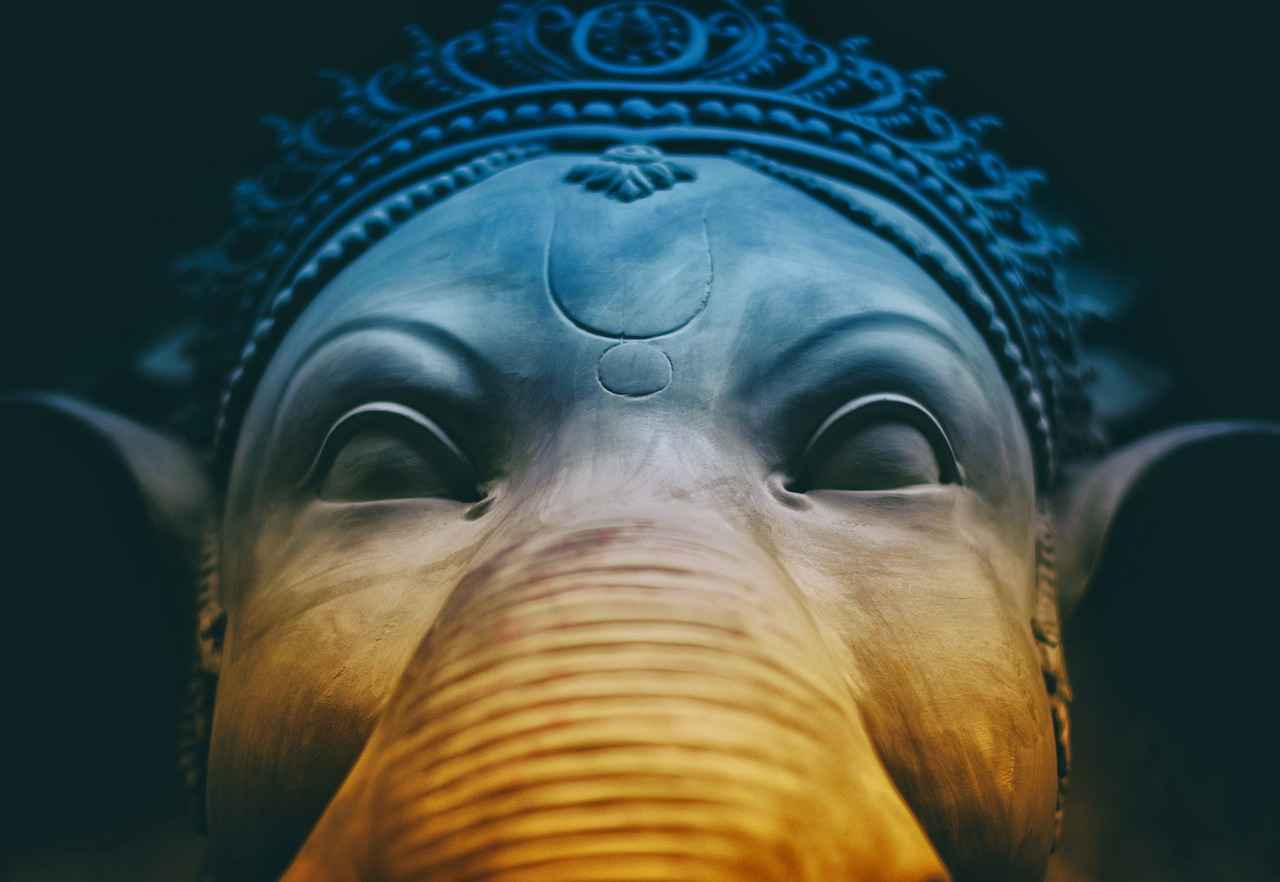This article delves into the remarkable transformation of Yato, a minor god in the anime Noragami, who embarks on a quest for recognition and purpose. Through this journey, we will explore significant themes, character development, and pivotal plot points that define his narrative.
The Origins of Yato: A Forgotten God
Yato’s story begins with his origins as a minor deity, once abandoned and forgotten. This backstory sets the stage for his quest for identity and purpose in a world filled with powerful gods and spirits. His initial struggles resonate with the audience, making his journey relatable.
The Role of Yukine: Yato’s Regalia
Yukine, Yato’s regalia, is integral to his development. Their relationship not only highlights Yato’s growth but also emphasizes the themes of friendship and loyalty. As they face challenges together, their bond deepens, showcasing how mutual support can lead to personal transformation.
- Yato and Yukine’s Dynamic: Their evolving relationship illustrates the importance of mentorship and the impact of their connection on both characters.
- Yukine’s Growth: From a troubled spirit to a confident regalia, Yukine’s journey mirrors Yato’s struggles, emphasizing how friendship can facilitate growth.
The Struggle for Recognition: Yato’s Quest
Yato’s quest for recognition drives the narrative, embodying the universal theme of seeking validation. His encounters with various challenges and adversaries test his resolve and showcase his growth into a true hero.
Thematic Elements in Noragami
Noragami explores rich themes such as redemption and forgiveness, resonating with audiences on a personal level. Yato’s journey illustrates that it is never too late to seek change and forgiveness.
Conclusion: Yato’s Legacy
Yato’s evolution from an abandoned god to a true hero serves as an inspiring tale of resilience and the power of connections. His journey leaves a lasting impact on both the characters within the story and the viewers who follow his path.

The Origins of Yato: A Forgotten God
Yato’s backstory is steeped in mystery and tragedy, revealing the profound struggles of a minor deity who was once lost to the annals of time. Abandoned by those who once worshipped him, Yato finds himself in a chaotic world dominated by powerful gods and spirits. This abandonment is not merely a physical separation; it symbolizes a deeper emotional void that fuels his quest for identity and purpose.
As a forgotten god, Yato grapples with feelings of insignificance and loneliness. His journey begins in the bustling streets of modern Japan, where he operates as a delivery god, hoping to gather followers and earn recognition. This desire for validation drives him to undertake various odd jobs, each one infused with a sense of desperation and hope. Yato’s character is marked by a unique blend of humor and melancholy, showcasing his resilience in the face of adversity.
Throughout his journey, Yato encounters other gods and spirits, each interaction revealing the complexities of divine politics and the harsh realities faced by minor deities. His relationships with these characters serve as a mirror, reflecting his own struggles and aspirations. Notably, Yato’s bond with his regalia, Yukine, becomes a pivotal aspect of his character development, emphasizing themes of friendship and redemption.
Yato’s quest is not just about seeking recognition; it is also about understanding his own worth and the significance of his existence. As he navigates the challenges of his world, he learns that true identity is not defined by the number of followers or the power he wields, but rather by the connections he forges and the lives he touches.
In conclusion, Yato’s origins as a forgotten god set the stage for a transformative journey filled with trials, growth, and self-discovery. His story resonates with anyone who has ever felt lost or undervalued, reminding us that the path to finding one’s purpose is often fraught with challenges, yet ultimately rewarding.

The Role of Yukine: Yato’s Regalia
In the captivating world of Noragami, Yukine stands out as more than just a weapon; he is a pivotal character who embodies the essence of Yato’s journey. As Yato’s regalia, Yukine is not only a tool for battle but also a reflection of Yato’s growth and struggles. Their relationship highlights the intricate dynamics of mentorship, friendship, and personal evolution.
Initially, Yukine appears as a troubled spirit, burdened by his past and insecurities. His transformation into Yato’s regalia symbolizes a new beginning, where he learns to harness his abilities and embrace his identity. This journey is marked by significant challenges, including moments of doubt and conflict, both with himself and Yato. As they face adversities together, their bond deepens, showcasing a profound theme of redemption and the importance of support in overcoming obstacles.
The evolution of Yato and Yukine’s dynamic is a central theme in the series. As Yukine learns from Yato, he begins to understand the value of self-worth and the impact of his choices. Yato, in turn, gains insights into responsibility and the weight of his past actions. This mutual growth illustrates how their relationship is not one-sided; both characters influence each other’s paths, leading to significant character development.
Moreover, Yukine’s struggles mirror Yato’s own journey from a forgotten god to a hero. Their intertwined fates emphasize that growth often comes from facing one’s fears and embracing change. Through Yukine, viewers witness the transformative power of friendship, as he evolves from a lost spirit into a confident regalia, ready to fight alongside Yato.
Ultimately, Yukine is not just a weapon; he is a testament to the strength of bonds and the journey of self-discovery. Together, Yato and Yukine navigate the complexities of their world, proving that true strength lies in understanding and supporting one another.
Yato and Yukine’s Dynamic
is a compelling exploration of the intricate bond between a minor god and his regalia, which serves as a pivotal element in the narrative of Noragami. Their relationship is not merely a master-servant dynamic; it evolves into a profound friendship that embodies themes of loyalty, redemption, and personal growth.
At the outset, Yato is portrayed as a god striving for recognition, while Yukine, a troubled spirit, initially struggles with his own identity. Their journey together begins with conflict, as Yukine grapples with feelings of abandonment and resentment. However, as they confront various challenges, their relationship transforms significantly.
- Friendship: The bond they share deepens through shared experiences, illustrating the power of trust and understanding. Yato’s guidance helps Yukine to discover his worth, while Yukine’s loyalty forces Yato to confront his past.
- Loyalty: Yukine’s unwavering loyalty to Yato becomes a cornerstone of their relationship. Despite the hardships they face, Yukine remains steadfast, which ultimately aids in Yato’s quest for redemption.
- Redemption: Both characters undergo significant transformations. Yato learns to take responsibility for his actions, while Yukine evolves from a lost spirit into a confident regalia. Their struggles highlight the importance of forgiveness and self-acceptance.
Their dynamic is a testament to how relationships can shape identity. As they navigate the complexities of their world, Yato and Yukine not only support each other but also challenge one another to grow. This mutual influence is essential for their development, making their bond a central theme in Noragami.
In conclusion, the evolving relationship between Yato and Yukine is a rich tapestry woven with themes of friendship, loyalty, and redemption. Their journey together not only defines their characters but also resonates deeply with the audience, illustrating the transformative power of connection.
Yato’s Influence on Yukine
In the captivating world of Noragami, the relationship between Yato and Yukine serves as a profound narrative thread that explores themes of self-worth and purpose. Yato, a minor god striving for significance, encounters Yukine, a troubled spirit who becomes his regalia. Their bond is not merely functional; it evolves into a deep mentorship that significantly influences both characters’ growth.
As Yato guides Yukine through the complexities of existence, he imparts valuable lessons that extend beyond the realm of gods and spirits. One of the most critical teachings Yato offers is the importance of recognizing one’s own value. Yukine, initially plagued by feelings of inadequacy and despair, learns to embrace his identity and purpose through Yato’s unwavering support. This mentorship highlights how vital it is for individuals to have someone who believes in them, particularly in their darkest moments.
Moreover, Yato’s influence on Yukine emphasizes the concept of mentorship as a powerful tool for personal development. Yato’s own struggles with self-identity and the quest for redemption resonate deeply with Yukine, creating a dynamic where both characters learn from each other. As Yukine begins to understand the significance of his role as Yato’s regalia, he transforms from a lost spirit into a confident companion, showcasing the transformative power of friendship.
Through their interactions, the narrative illustrates that mentorship is a two-way street. Yato, while imparting wisdom, also learns valuable lessons about responsibility, sacrifice, and the essence of being a true hero. This mutual growth not only strengthens their bond but also enriches their characters, allowing them to navigate the challenges of their world more effectively.
In conclusion, Yato’s influence on Yukine is a testament to the profound impact that mentorship can have on personal growth and self-discovery. Their journey together underscores the importance of connection in overcoming adversity and finding one’s place in the universe.
Yukine’s Growth and Challenges
In the captivating world of Noragami, Yukine stands out as a pivotal character whose evolution is both profound and inspiring. Initially introduced as a troubled spirit, Yukine grapples with feelings of abandonment and confusion. However, his journey towards becoming a confident regalia is a testament to the transformative power of friendship and the necessity of confronting one’s fears.
Yukine’s relationship with Yato, his master, is central to his development. As a minor god, Yato himself faces numerous challenges, and his efforts to guide Yukine reflect a deeper theme of mentorship. Through their interactions, Yukine learns valuable lessons about self-worth, resilience, and the importance of facing adversity head-on. This dynamic not only strengthens their bond but also illustrates how mutual support can lead to personal growth.
Throughout the series, Yukine encounters various obstacles that test his resolve. From battling inner demons to confronting external threats, each challenge serves as a catalyst for his transformation. The emotional turmoil he faces is mirrored in his evolving abilities as a regalia, showcasing his journey from uncertainty to confidence. As he learns to harness his powers, Yukine begins to understand his worth, both as a spirit and as Yato’s companion.
Moreover, Yukine’s struggles resonate with many viewers, emphasizing that everyone has the potential for growth, regardless of their past. His journey is a reminder that it is essential to confront fears and embrace change. By overcoming his challenges, Yukine not only transforms himself but also plays a crucial role in Yato’s own quest for identity and purpose.
In conclusion, Yukine’s path from a lost spirit to a self-assured regalia exemplifies the profound impact of friendship and the importance of facing one’s fears. His character arc enriches the narrative of Noragami, offering a relatable and inspiring story of personal growth and resilience.
Yato’s Relationships with Other Gods
In the intricate world of Noragami, Yato’s interactions with other deities, particularly Bishamon and Kofuku, unveil the multifaceted nature of divine politics. These relationships are not merely side notes; they play a crucial role in shaping Yato’s character and his quest for identity and recognition.
- Bishamon: A goddess of fortune, Bishamon embodies the complexities of divine hierarchy. Her initial hostility towards Yato stems from their shared past and her protective nature over her regalias. This rivalry not only presents Yato with formidable challenges but also pushes him to confront his own shortcomings and insecurities.
- Kofuku: In contrast, Kofuku represents a more lighthearted yet equally complicated aspect of divine existence. As the goddess of poverty, her carefree demeanor masks the serious undertones of her struggles. Kofuku’s interactions with Yato highlight the themes of friendship and support, illustrating how even minor gods can find solace in each other amidst the chaos of their divine responsibilities.
These relationships reveal the challenges faced by minor gods like Yato, who often find themselves overshadowed by their more powerful counterparts. The divine politics at play not only enrich the narrative but also deepen Yato’s character arc, showcasing his growth from a self-serving deity to one who understands the value of collaboration and empathy.
Through his encounters with Bishamon and Kofuku, Yato learns valuable lessons about trust, loyalty, and the importance of forging connections. These experiences are pivotal in his journey, as they compel him to reflect on his past actions and motivate him to strive for a better future, both for himself and those he cares about.
Ultimately, Yato’s relationships with these gods serve as a mirror, reflecting his internal struggles and aspirations. They highlight the complexities of divine existence and the intricate web of relationships that define the world of Noragami.

The Struggle for Recognition: Yato’s Quest
Yato’s journey in Noragami is profoundly shaped by his relentless pursuit of recognition. This quest not only drives the narrative but also encapsulates a universal theme that resonates with many: the desire for validation. Yato, a minor god, grapples with feelings of abandonment and insignificance, prompting him to strive for acknowledgment in a world dominated by more powerful deities.
As Yato navigates through various challenges, his determination to prove his worth becomes increasingly evident. The series illustrates how this quest for recognition pushes him to confront formidable adversaries, including other gods and malevolent spirits. Each encounter tests his resolve and highlights the lengths to which he is willing to go to achieve his dreams, often leading him into perilous situations.
Throughout his journey, Yato’s growth is marked by pivotal moments that redefine his character. Initially driven by self-interest, he gradually evolves into a hero who prioritizes the well-being of others. This transformation underscores the significance of sacrifice and responsibility, essential elements in his quest for validation. Yato’s relationships with his regalia, Yukine, and other characters further enrich this narrative. They serve as mirrors reflecting his internal struggles and the impact of his choices.
Moreover, the series delves into the complexities of divine politics, showcasing how Yato’s interactions with other gods influence his journey. These dynamics not only highlight the challenges faced by minor deities but also emphasize the importance of perseverance in the face of adversity.
Ultimately, Yato’s quest for recognition is a compelling narrative thread that resonates deeply with audiences. It illustrates that the pursuit of validation is not merely about achieving greatness but also about understanding oneself and the value of connections forged along the way. Yato’s evolution from a forgotten god to a revered hero serves as an inspiring testament to the power of resilience and the human spirit.
Challenges and Adversaries
Throughout his journey, Yato faces a myriad of challenges and formidable adversaries that not only test his strength but also his character. Each encounter serves as a pivotal moment, pushing him to confront his past, question his motives, and ultimately emerge as a more resilient individual.
One of the most significant challenges Yato faces is the constant threat posed by other gods who view him as a mere nuisance. His interactions with the powerful Bishamon highlight the complexities of divine politics and the precarious nature of his existence as a minor god. This rivalry forces Yato to sharpen his skills and develop strategies to protect those he cares about.
Additionally, Yato’s relationship with his regalia, Yukine, introduces another layer of challenges. As they navigate their tumultuous bond, Yato must learn to balance his responsibilities as a mentor with the need to foster Yukine’s growth. This dynamic not only tests Yato’s patience but also his understanding of friendship and loyalty.
Moreover, Yato’s encounters with malevolent spirits and other supernatural beings further complicate his journey. Each battle forces him to confront his own fears and insecurities, revealing the depths of his character. For instance, during his confrontation with the Phantom, Yato must confront the consequences of his past actions, ultimately leading to a moment of self-reflection and growth.
As Yato faces these adversaries, he begins to embody the traits of a true hero. His willingness to sacrifice for others, coupled with his determination to rise above his circumstances, showcases his evolution from a self-serving deity to a selfless protector. This transformation is not instantaneous; rather, it is a gradual process marked by numerous trials that shape his identity.
In conclusion, the challenges and adversaries that Yato encounters throughout his journey are instrumental in his character development. Each conflict serves as a stepping stone, guiding him towards his ultimate goal of becoming a recognized and respected god. Through perseverance and resilience, Yato not only overcomes these hurdles but also discovers the true meaning of heroism.
Yato’s Evolution as a Hero
Yato’s transformation from a self-serving god into a true hero is a profound journey that resonates deeply with themes of sacrifice, love, and responsibility. Initially, Yato is portrayed as a minor deity who seeks recognition through trivial acts, often displaying a lack of concern for the consequences of his actions. However, pivotal moments throughout the series catalyze his evolution, forcing him to confront his past and redefine his purpose.
One of the most significant turning points in Yato’s journey occurs through his relationship with Yukine, his regalia. This dynamic is not only essential for Yato’s character development but also serves as a mirror reflecting his own struggles with identity and worth. As their bond deepens, Yato begins to understand the importance of mentorship and the impact of his choices on those around him. His initial self-serving nature gradually shifts as he learns to prioritize the well-being of others over his own desires.
Moreover, Yato’s encounters with various gods and spirits highlight the complexities of divine politics and the moral dilemmas he faces. These interactions challenge his understanding of heroism and compel him to take responsibility for his actions. The conflicts with adversaries like Bishamon and Kofuku further test his resolve, pushing him to embrace his role as a protector rather than a mere figure seeking glory.
Ultimately, Yato’s journey is a compelling narrative of redemption. It illustrates that true heroism is not defined by power or recognition but by the willingness to sacrifice for the sake of others. His evolution culminates in a profound realization: that love and responsibility are the cornerstones of a meaningful existence. Through this transformative arc, Yato emerges not just as a god, but as a symbol of hope and resilience, inspiring those around him to strive for their own growth and understanding.

Thematic Elements in Noragami
In the captivating world of Noragami, various themes intertwine to create a rich narrative that resonates with audiences. The series delves into the complexities of friendship, the quest for redemption, and the ongoing search for identity. These themes not only enhance Yato’s character arc but also reflect deeper insights into the human experience through a supernatural lens.
Friendship and Loyalty
The bonds formed between characters in Noragami emphasize the importance of friendship and loyalty. Yato’s relationship with his regalia, Yukine, showcases how these connections can influence decisions and foster growth. Their journey together illustrates that true companionship can lead to profound personal transformations, as they navigate the trials of their world.
Redemption and Forgiveness
Yato’s narrative serves as a powerful exploration of redemption. His past mistakes haunt him, yet the series poignantly illustrates that it is never too late to seek forgiveness and change. This theme resonates deeply with viewers, reminding them that the journey toward self-improvement is filled with challenges but is ultimately rewarding.
Search for Identity
Throughout Noragami, the theme of searching for identity is ever-present. Yato, as a minor god, grapples with his place in a world dominated by more powerful deities. His quest for recognition and purpose reflects a universal struggle, making his character relatable to anyone who has ever felt lost or insignificant.
Conclusion
The thematic elements in Noragami enrich the overall narrative, providing layers of meaning that enhance character development and plot progression. Through the exploration of friendship, redemption, and identity, the series offers viewers a profound understanding of the human experience, all while wrapped in a captivating supernatural story.
Friendship and Loyalty
are central themes in the anime Noragami, profoundly influencing the characters’ journeys and decisions. The relationships formed between Yato, Yukine, and other characters serve as a testament to the power of these bonds, shaping their identities and destinies throughout the series.
At the heart of Yato’s story is his relationship with Yukine, his regalia. This connection is not merely functional; it evolves into a deep friendship that embodies loyalty and mutual support. Yukine, initially a troubled spirit, finds purpose and strength through his bond with Yato. As their relationship develops, Yukine learns the significance of trust and self-worth, which ultimately leads to his growth into a confident and capable regalia.
Moreover, Yato’s interactions with other characters, such as Bishamon and Kofuku, further illustrate the complexities of loyalty and friendship in a world filled with divine politics. Each relationship adds layers to Yato’s character, showcasing how friendships can influence decisions and moral choices. The conflicts and alliances he navigates reveal the importance of loyalty, not just to friends but also to one’s principles.
This theme is poignantly highlighted during moments of crisis, where the characters must choose between their own desires and the well-being of their friends. These choices often lead to significant character development, emphasizing that true strength comes from the bonds we forge with others. In essence, the friendships in Noragami are not merely background elements; they are crucial to the characters’ growth and the overall narrative arc.
In conclusion, in Noragami serve as powerful catalysts for character development and plot progression. The series beautifully illustrates how these relationships shape the characters’ paths, making their journeys relatable and inspiring. Through the lens of friendship, viewers are reminded of the profound impact that connections can have on our lives.
Redemption and Forgiveness
are central themes in the narrative of Yato from Noragami. His journey is a profound exploration of how one can rise from the depths of despair and seek a path toward healing and self-discovery. Yato, initially portrayed as a self-serving minor god, evolves significantly throughout the series, emphasizing that it is never too late to change and seek forgiveness.
The concept of redemption is intricately woven into Yato’s character arc. Abandoned and forgotten, he grapples with his past misdeeds and the consequences of his actions. This struggle is relatable to many, as it reflects the universal human experience of seeking to make amends. Yato’s encounters with various characters, including his regalia Yukine, serve as catalysts for his transformation. Through their relationship, Yato learns valuable lessons about responsibility, sacrifice, and the importance of connection.
Moreover, Yato’s journey highlights the power of forgiveness. His interactions with those he has wronged illustrate that forgiveness is not only a gift to others but also a pathway to personal liberation. The emotional weight of his past mistakes weighs heavily on him, yet he strives to atone for them, showcasing the resilience of the human spirit. The series poignantly captures the idea that seeking forgiveness is a courageous act that can lead to profound personal growth.
Ultimately, Yato’s narrative resonates with audiences on a deeply personal level. It serves as a reminder that everyone has the capacity for change and that the pursuit of redemption is a noble journey. As viewers witness Yato’s struggles and triumphs, they are encouraged to reflect on their own paths toward forgiveness and self-acceptance.
In conclusion, Yato’s story in Noragami offers a powerful testament to the themes of redemption and forgiveness. His evolution from an abandoned god to a figure of hope illustrates that it is never too late to seek a better version of oneself, inspiring audiences to embrace their own journeys of change and healing.

Conclusion: Yato’s Legacy
Yato’s Journey: From Abandoned God to a True Hero in Noragami
Yato’s story in Noragami is a compelling narrative that illustrates the profound journey of a minor god striving for recognition and purpose. His transformation from an abandoned deity to a celebrated hero is both inspiring and relatable, resonating deeply with audiences. This article delves into the key themes, character developments, and significant plot points that define Yato’s evolution.
The Origins of Yato: A Forgotten God
Initially, Yato is portrayed as a forgotten god, lost in a world dominated by powerful deities. His abandonment sets the stage for his quest for identity and meaning, highlighting the struggles of those who feel overlooked in society.
The Role of Yukine: Yato’s Regalia
Yukine, Yato’s regalia, plays a pivotal role in his journey. Their relationship is central to the narrative, showcasing how their bond shapes Yato’s character and influences his growth throughout the series.
- Yato and Yukine’s Dynamic: Their evolving relationship emphasizes themes of friendship, loyalty, and redemption, illustrating the transformative power of their connection.
- Yukine’s Growth: Yukine’s transformation from a troubled spirit to a confident regalia mirrors Yato’s struggles, showcasing the importance of facing fears and personal growth.
The Struggle for Recognition: Yato’s Quest
Yato’s relentless pursuit of recognition drives the plot forward, embodying the universal desire for validation. His journey is fraught with challenges and adversaries that test his resolve and character.
Thematic Elements in Noragami
Noragami explores various themes such as friendship, redemption, and the search for identity. These elements enrich Yato’s narrative and provide deeper insights into the human experience through a supernatural lens.
Ultimately, Yato’s journey from an abandoned god to a true hero in Noragami serves as an inspiring tale of growth, resilience, and the power of connections. His legacy leaves a lasting impact not only on the characters within the story but also on viewers, reminding us of the strength found in relationships and the possibility of redemption.
